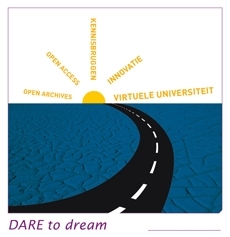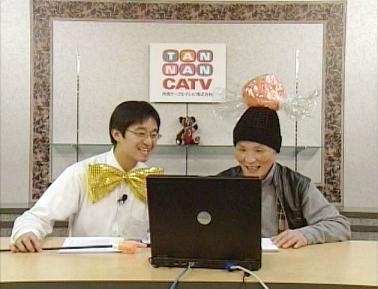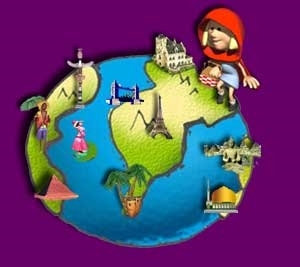 |
| Dare to Dream (DAREnet.nl) |
So what happens to all that information generated by academic and research institutions? What happens to all those theses, papers, dissertations and datasets? Where do the findings from all of those research projects and experiments end up? For years now, the lucky few have had their results published by science journals, many of them expensive or only available at a University library. For the rest, academic oblivion: a dusty stay in an archival filing cabinet in the library basement.
The Digital Academic Repositories network might just change all that. As the infrastructure used to distribute research results shifts from printed to digital form, DAREnet finds itself at the leading edge of a worldwide movement towards "open access" to academic publications. DAREnet links together academic and research institutions and makes their findings available over the Internet. Fast and free. What is a Digital Academic Repository? It's a cache of information accumulated by an academic research institution. Experiment results, research, theses are all digitized, stored and made available online to anyone with access to the Internet. Who benefits? Anyone who doesn't live near a University library, for one. Anyone who can't afford the rising prices of scientific journals for another. And since material published in science journals represents a fraction of the total research done in academia, some of the more obscure, even flawed research can still be mined for nuggets of wisdom.
 |
| Leo Waaijers, Program Manager, Darenet (surf.nl) |
MY HERO recently caught up with Leo Waaijers, Darenet Program Manager, to tell us about this revolutionary informational exchange. Initially launched in January, 2004, the DARE program was a response to the so-called "serials crisis." It was a situation in academia where the most prestigious science journals were raising their licensing fees to such a high price that many learning institutions simply couldn't afford the subscription. As subscriptions dipped, prices were raised in response to the lower demand, creating, in Leo Waaijers' words, "a negative spiral," and widening the gap between academic research results and the learning institutions and students who needed them most. Enter DAREnet. Mr. Waaijers explains, "DAREnet is the national Dutch window of openly accessible research." And in the Netherlands, that means everybody. All the universities of the country, every publicly funded academic institution, contribute to this enormous cache of information. The DARE program is a joint initiative by all the Dutch Universities, the National Library of the Netherlands and the Royal Netherlands Organisation for Scientific Research (NOW). It set out to achieve a specific goal: to demonstrate the viability of a digital warehouse of information. Their goal was more than met. This network of academic "repositories" is now available to anyone, anywhere in the world. And their numbers are growing. Counting some 650 academic and research institutions in the network, DAREnet adds about one per day. Currently, they are linked to some 72 science journals and expect this number to double over the next year.
 |
| Enjoying DAREnet in Japan (t-catv.co.jp) |
Who does this help? All of us. Repositories containing scholarly publications offer unrestricted access to all. Open access means that sources of scholarly information are freely available to all on the Internet. And since access is no longer confined to the subscribers of expensive journals, it's possible for this material to reach a much wider audience, making the work of colleagues and peers easier to find. But the ultimate goal of this groundbreaking coalition, according to Mr. Waaijers, is to "(improve) the process of research itself. The better the access, the more (the research) is read and used and cited." What's more, it aids in leveling the playing field for developing countries, making it possible for them "to share in the knowledge without paying high prices."
 |
| E Learning (e-learning.surf.nl) |
After speaking with Mr. Waaijers for far longer than expected, it became clear that "sharing knowledge" isn't just something that the people of DAREnet talk about. It's something they're making a reality. Because, for the people of DAREnet and Cream of Science and OAISTER and now, many, many others, sharing knowledge isn't something that only takes place in the halls of learning or in the pages of a science journal. Knowledge is for everyone. And as long as there are people like Leo Waaijers or his predecessor, Lilian Van Der Zaart, as long as there are countries like the Netherlands, then something as radical as free, universal access to all content for everyone will eventually be seen as commonplace. And the people who made it possible will be appreciated for the heroes they truly are.
Page created on 6/21/2006 11:27:23 AM
Last edited 1/9/2017 9:41:29 PM
